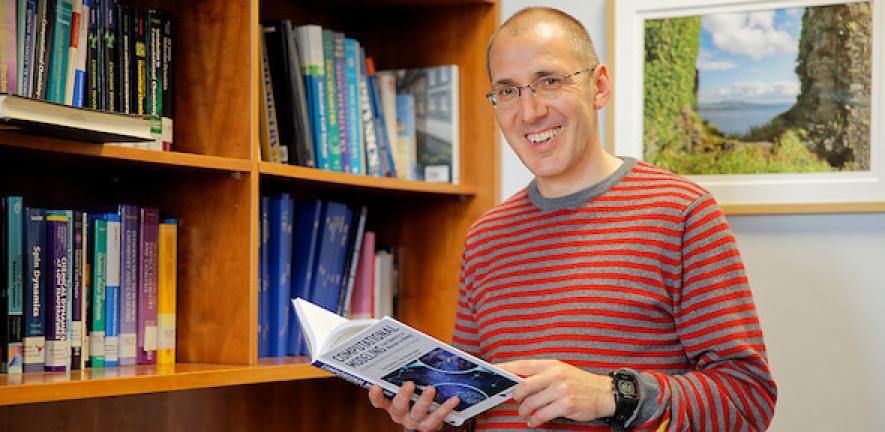
When water is nanoconfined, for example where it’s trapped between membranes or in tiny nanoscale cavities, its properties change dramatically. Water flows differently, and conventional theories can no longer explain its behaviour. Michaelides will be working with colleagues at the École normale supérieure-PSL and CNRS in Paris and the Max Planck Institute in Mainz to investigate the properties of this nanoconfined water.
The team’s “n-AQUA” project will initially focus on studying and understanding water at the nanoscale, but the research could ultimately lead to improved technologies for splitting water to make hydrogen or for water desalination.
The joint experiments will rely on the expertise in nanometer confinement in Paris, the ability to ‘see’ water using advanced spectroscopies in Mainz, and Michaelides’ ICE group’s skill in theory and simulation, to obtain a holistic picture of nanoscale water.
The Synergy Grant will fund the research for the next six years. The grant is awarded by the European Research Council (ERC) and is explicitly given for the collaboration of different principal investigators who “bring different skills and resources to tackle ambitious research problems.”
A total of 29 research groups in Europe and around the world have been backed by the 2022 ERC Synergy Grants to tackle complex multidisciplinary research questions. The funding, worth in total €295 million, will help groups led by two to four outstanding researchers bring together complementary skills, knowledge and resources in an ambitious project that could not be addressed by the individual principal investigators and their teams working alone.
The winning projects involve 105 principal investigators who will carry out their research at universities and research centres in 19 countries across Europe and beyond.
On hearing that the team’s proposal was successful, Michaelides said: “ERC funding is fantastic: There’s nothing better for us than sustained funding like this for fundamental science. I’m also really looking forward to working more closely with the groups in Mainz and Paris.”
Mariya Gabriel, European Commissioner for Innovation, Research, Culture, Education and Youth, said: “The ERC’s trademark is long-term funding to individual top researchers. But some problems are too big for the most outstanding minds to address alone. These new grants will enable scientists to join forces and follow their curiosity together across disciplinary boundaries. They are set to gain insights that will help us understand the world around us and to face future challenges. Congratulations and good luck to all the grantees!”

